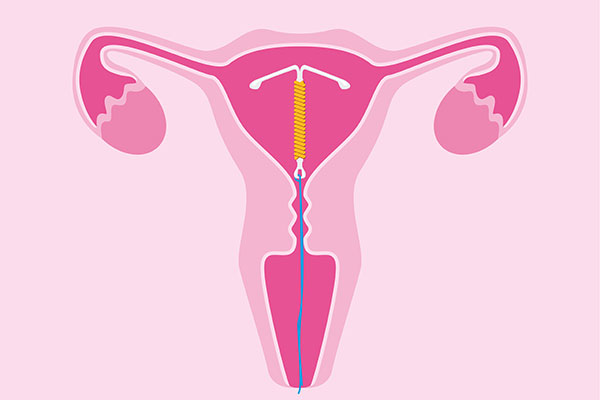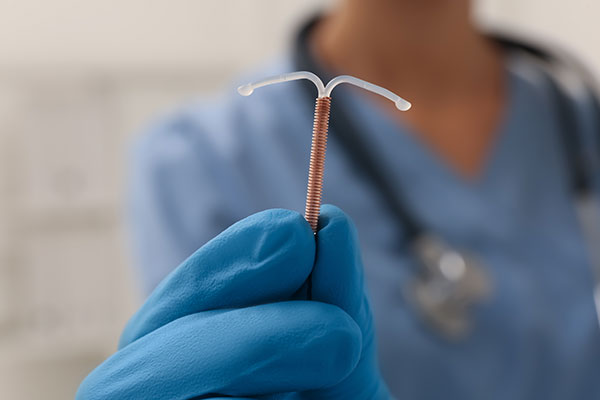Choosing the right contraceptive method is one of the most personal healthcare decisions you’ll make, and intrauterine devices have become increasingly popular among women in Cumming and North Metro Atlanta for good reason.
Category: Birth Control
The Pros and Cons of an IUD for Birth Control: Is It Right for You?
Choosing the right birth control method is a highly personal decision, and for many women, an intrauterine device (IUD) offers a convenient and highly effective option. At North Pointe OB/GYN in Cumming, we help patients navigate their birth control choices, ensuring they find the method that best suits their lifestyle and reproductive health goals.
Top 10 Questions to Ask Your Gynecologist
Navigating your gynecological health can be a journey filled with questions and uncertainties. Here are the top 10 questions we recommend asking your gynecologist to empower your health and well-being.
Everything You Need to Know About IUDs
In the quest for reliable and hassle-free contraception, many turn to Intrauterine Devices (IUDs) for their effectiveness and ease of use. At North Pointe OB/GYN in Cumming, we believe in empowering our patients with comprehensive knowledge about their contraceptive options. Here’s everything you need to know about IUDs, from their basics to the different types available and how they work to prevent pregnancy.
What Are IUDs?
IUDs are small, T-shaped devices inserted into the uterus by a healthcare professional to prevent pregnancy. They are long-term, reversible forms of birth control that can remain in place for several years, depending on the type. IUDs are one of the most effective forms of contraception available today, with more than 99% effectiveness in preventing pregnancy.
Types of IUDs
There are two main types of IUDs: hormonal and non-hormonal. Each type has its own mechanism of action and duration of effectiveness.
Hormonal IUDs
Hormonal IUDs release a small amount of progestin, a hormone similar to progesterone produced by the ovaries. This hormone works by:
- Thickening the cervical mucus to prevent sperm from entering the uterus.
- Thinning the lining of the uterus, making it less suitable for a fertilized egg to implant.
- In some cases, suppressing ovulation.
Hormonal IUDs can last between 3 to 6 years, depending on the brand. Common brands include Mirena, Kyleena, Skyla, and Liletta.
Non-Hormonal IUDs
The non-hormonal IUD, typically represented by the brand Paragard in the United States, is made of copper. The copper acts as a spermicide, destroying sperm before they can reach and fertilize an egg. The presence of copper also creates an inflammatory reaction within the uterus that is toxic to sperm. This type of IUD can last up to 10 years.
How IUDs Prevent Pregnancy
IUDs provide a physical barrier and chemical environment that is inhospitable to sperm, thereby preventing fertilization. The effectiveness of IUDs comes from their ability to interfere with the sperm’s ability to reach and fertilize an egg. Additionally, the hormonal IUDs alter the uterine lining, making it less receptive to a fertilized egg, further reducing the chance of pregnancy.
The Insertion Process
The insertion of an IUD is a quick procedure typically done in a healthcare provider’s office, like North Pointe OB/GYN. While the process can cause some discomfort, it is generally well-tolerated. Patients may experience cramping or spotting after insertion, but these symptoms usually subside within a few days to weeks. A follow-up visit is often recommended to ensure the IUD is properly in place.
Benefits and Considerations
IUDs offer several benefits, including long-term protection, reversibility, and the convenience of not having to remember daily pills. However, they do not protect against sexually transmitted infections (STIs), so using condoms in conjunction with an IUD is advisable for STI prevention.
Choosing the right type of IUD depends on individual health, lifestyle, and the duration of contraception desired. Discussing your options with a healthcare provider at North Pointe OB/GYN will help determine the best choice for your specific needs.
Empowering Your Choice
Understanding your contraceptive options is key to making informed decisions about your reproductive health. IUDs represent a highly effective, long-term solution for those seeking reliable birth control. At North Pointe OB/GYN in Cumming, our team is dedicated to providing personalized care and guidance to help you choose the best contraceptive method for your lifestyle and health goals. If you’re considering an IUD or have questions about contraception, we’re here to support your journey toward empowered health decisions.
When to Consider Non-Hormonal Birth Control
Contraception, or birth control, is the most popular way to prevent pregnancy. However, not all contraception is the same. In general, birth control falls into two main categories: hormonal and non-hormonal. Every female body is unique, and it is important to choose the best form of contraception that fits your needs and goals. For many women, this means weighing the risk of pregnancy against the side effects of hormonal birth control.
Birth control that contains hormones carries a very high success rate in preventing pregnancy, especially when compared to condoms or diaphragms. Hormonal birth control methods release hormones that alter the body’s chemistry to prevent pregnancy. This can involve thinning the uterine lining, preventing ovulation or other hormonal deviations that will prevent the natural conception process from occurring. While hormonal birth control typically involves taking a daily pill, there are other forms of hormonal contraception including rings, patches, shots or IUDs.
The hormones that are released into your body to prevent pregnancy can agree with you and even help your condition, such as when you have bad acne or heavy periods. However, not all women can tolerate the addition or hormones that come from this type of birth control. In fact, the side effects can be rather rough for some females, even after the initial adjustment period.
The Potential Setbacks of Hormonal Contraception
While there are various strengths and hormone combinations to choose from, there are some very common side effects that can occur with hormonal birth control. For women who experience the following risks and downsides from birth control, a non-hormonal version may be better:
- Bleeding between periods
- Headaches
- High blood pressure
- Increased risk of blood clots and high blood pressure
- Irregular periods
- Mood swings
- Nausea
- Sore breasts
- Spotting between periods
- Weight gain
- Failure to protect against STDs
Non-Hormonal Birth Control Options
Non-hormonal forms of birth control provide on-demand protection from pregnancy as well as sexually transmitted diseases. They work by creating a physical barrier that stops sperm from entering the uterus. Hormone-free birth control options include condoms, diaphragms, sponges, cervical caps, cervical shields, IUDs, spermicide and an acid-based vaginal gel. It is important to note that these options may not work as well as hormonal birth control, and they are not nearly as convenient (“in the moment”). However, for females who do not tolerate the extra hormones or want to deal with the side effects, non-hormonal contraception may be the better choice.
At North Pointe OB/GYN, we are here to help you choose the best contraception for you. Our physicians are highly knowledgeable when it comes to the latest and most effective birth control options available. We consider personal health profile, your sex life and your family-planning goals. Call our Cumming clinic today for expert advice.







